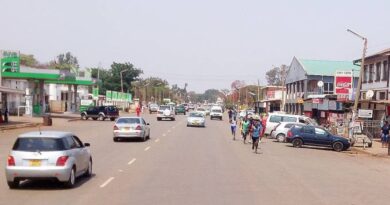Waiting for the hangman: Richard Mapolisa’s journey from deathrow to freedom
PERHAPS his past experiences as a liberation struggle fighter hardened him and made him stronger. How else can one describe a 99-year-old man who can still do everything for himself without hustle?
He has a sharp memory too and recalls his past life and narrates it intelligibly, and eloquently.
Former war detainee Cde Richard Mapolisa (99), whose sentence was commuted from death by hanging to life imprisonment, opened up about his experiences from political activism to imprisonment and eventual freedom.
Cde Mapolisa was arrested in 1965 after a failed attempt to petrol bomb a house belonging to white colonialists.
He served prison time at Khami Maximum Prison on the outskirts of Bulawayo, where President Mnangagwa was also serving.
Cde Mapolisa was released on the eve of the country’s independence on 17 April 1980.
His journey began at Munyati Power Station, where he pursued his education and later joined politics in 1948.
He became active in politics with the late early veterans of the struggle such as Cde Benjamin Burombo and Dr Joshua Nkomo.
He said Dr Nkomo was working at the Rhodesia Railways and was also the Secretary-General of the Railway Workers Union (RAWU).
“I learned at Munyati Power Station where I did my Standard Two. I later did my Standard Four through correspondence. I joined and became active in politics in 1948 with Cde Benjamin Burombo. There was no real politics by then, we were under the African Workers Movement.
“This was the time I got to know Dr Joshua Nkomo, he was working at the railways then and had a carpentry shop. He was also the Secretary-General of the Railway Workers Union known then as RAWU,” said Cde Mapolisa at the Department of the War Veterans stand at the just ended Zimbabwe International Trade Fair (ZITF) where he was part of the exhibitors.
Cde Mapolisa recounted his involvement in the formation of various political organisations.
“Politics then came with Morris Nyagumbo, James Chikerema and George Nyandoro who came with it from South Africa where they had gone to work at Wenela,” he said.
He added that they later formed the ANC but it was banned. Following the ban, they regrouped and formed the National Democratic Party (NDP) with Cde Michael Mawema as the caretaker President.
When the NDP was also banned, ZAPU was formed and a number of young people who were active in politics were moved to Tanzania for military training.
Cde Mapolisa and his colleagues were the first to be trained before a lot of the firearms were made available. He said they were told that even a knife could liberate the country.
“We were the first to be trained before there were all these guns. We were told even a knife could liberate the country. When we came back, the Rhodesians were now out in full force as they tried to contain the nationalist movements and some of our colleagues ran away as they feared arrest because once you were known that you were active in politics you would get a restriction.”
He said it was around that time when Patrick Matimba, Leonard Tsumbe the former Governor of the Reserve Bank of Zimbabwe and Bernard Chidzero, former Finance Minister had married white women.
He said there was disgruntlement with questions being asked on how a white person can marry a baboon or a monkey and they were expelled from the university.
“They were given peace orders and told to go and live with their wives, Matimba was in Holland and when he heard that politics had come down and people had gone to Tanzania he returned and formed Zimbabwe National Party (ZNA) and asked us if we could start operating and we agreed,” recounted Cde Mapolisa.
Cde Mapolisa’s involvement in political activism took a turn with the formation of the ZNP.
He participated in an action where he threw a petrol bomb at a house in Waterfalls, Harare. He was identified through a person named Henry Chihota, who sold him out.
He was arrested on 7 June 1963, and sentenced to death in September of that year.
His arrest and imprisonment were widely known among his comrades in Tanzania.
Reflecting on his challenging past, Cde Mapolisa shared a message of unity with Zimbabweans.
He emphasised the importance of safeguarding the country’s heritage and being united as a nation.
He expressed gratitude for being kept safe by God and urged the younger generation to preserve the history that has been shared with them.




